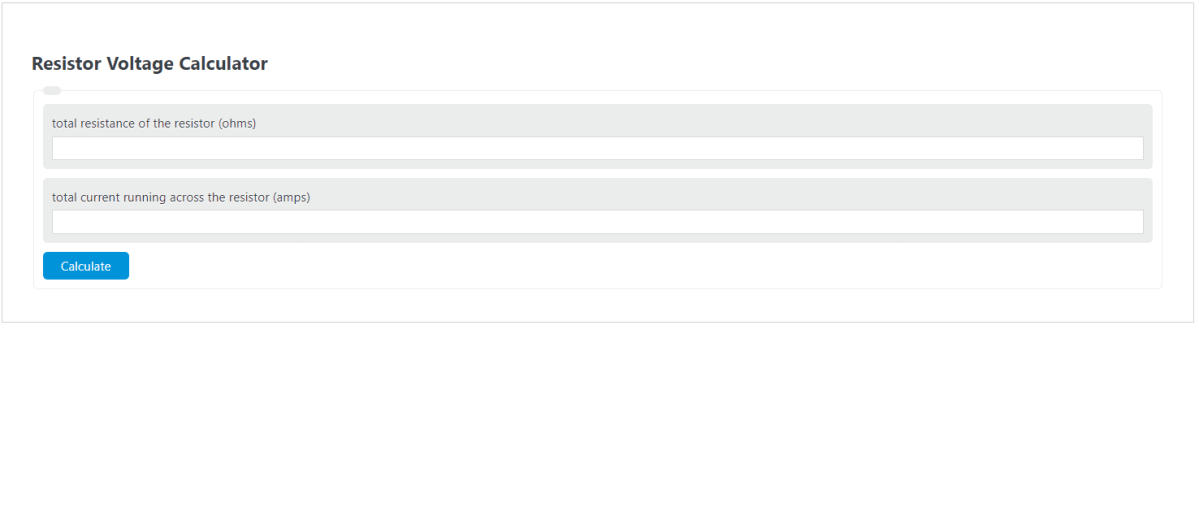Enter the total resistance of the resistor (ohms) and the total current running across the resistor (amps) into the calculator to determine the Resistor Voltage.
- All Electrical Calculators
- Resistor Divider Calculator
- Parallel Resistance Calculator
- Watts to Voltage Calculator
Resistor Voltage Formula
The following formula is used to calculate the Resistor Voltage.
RV = TR * TI
Variables:
- Where RV is the Resistor Voltage (Volts)
- TR is the total resistance of the resistor (ohms)
- TI is the total current running across the resistor (amps)
To calculate the resistor voltage, multiply the resistance by the current running across the resistor.
How to Calculate Resistor Voltage?
The following two example problems outline the steps and information needed in order to calculate the Resistor Voltage.
Example Problem #1:
- First, determine the total resistance of the resistor (ohms). In this example, the total resistance of the resistor (ohms) is measured to be 15.
- Next, determine the total current running across the resistor (amps). For this problem, the total current running across the resistor (amps) is calculated to be 3.
- Finally, calculate the Resistor Voltage using the formula above:
RV = TR * TI
Inserting the values from above into the equation yields:
RV = 15* 3 = 45 (Volts)
FAQ
What is the significance of calculating resistor voltage in electrical circuits?
Calculating the voltage across a resistor is crucial for understanding how electrical energy is distributed within a circuit. It helps in designing circuits with the desired electrical characteristics and ensures that components operate within their safe voltage and current limits, preventing potential damage.
Can resistor voltage calculation be applied to both AC and DC circuits?
Yes, the basic principle of calculating voltage across a resistor by multiplying its resistance (in ohms) by the current flowing through it (in amps) applies to both AC (Alternating Current) and DC (Direct Current) circuits. However, in AC circuits, factors such as phase difference and frequency may need to be considered for more complex calculations.
How does the resistor voltage calculation relate to Ohm’s Law?
The resistor voltage calculation directly applies Ohm’s Law, which states that the voltage across a resistor is equal to the product of the current flowing through the resistor and its resistance. This relationship (V = IR) is fundamental to understanding and analyzing electrical circuits.
